
Airports
A JSON database of 28k+ airports with ICAO/IATA codes, names, cities, two-letter country identifiers, elevation, latitude & longitude, and a timezone identifier
Stars: 481
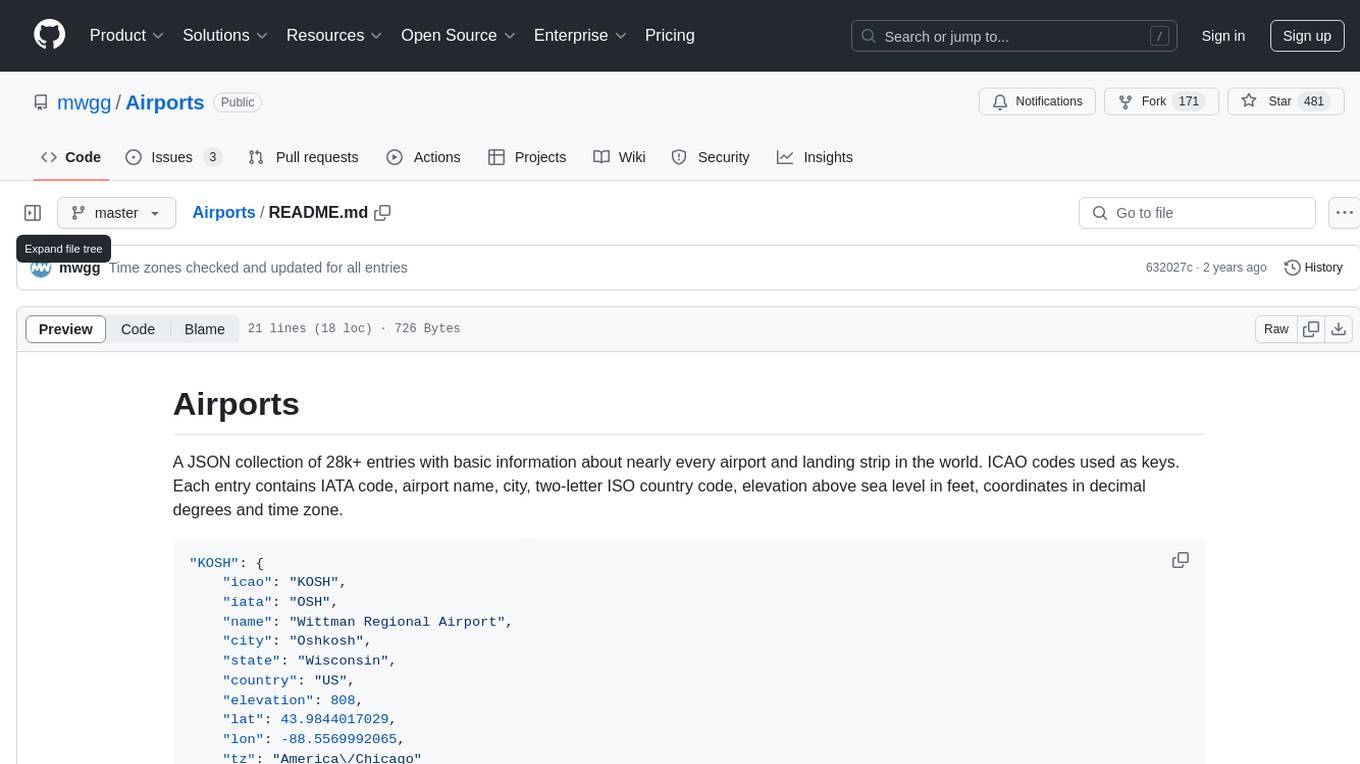
Airports is a JSON collection with detailed information about over 28,000 airports and landing strips worldwide. Each entry includes IATA code, airport name, city, country code, elevation, coordinates, and time zone.
README:
A JSON collection of 28k+ entries with basic information about nearly every airport and landing strip in the world. ICAO codes used as keys. Each entry contains IATA code, airport name, city, two-letter ISO country code, elevation above sea level in feet, coordinates in decimal degrees and time zone.
"KOSH": {
"icao": "KOSH",
"iata": "OSH",
"name": "Wittman Regional Airport",
"city": "Oshkosh",
"state": "Wisconsin",
"country": "US",
"elevation": 808,
"lat": 43.9844017029,
"lon": -88.5569992065,
"tz": "America\/Chicago"
},Time zones initially sourced from TimeZoneDB and updated using TimeAPI.
For Tasks:
Click tags to check more tools for each tasksFor Jobs:
Alternative AI tools for Airports
Similar Open Source Tools

Airports
Airports is a JSON collection with detailed information about over 28,000 airports and landing strips worldwide. Each entry includes IATA code, airport name, city, country code, elevation, coordinates, and time zone.
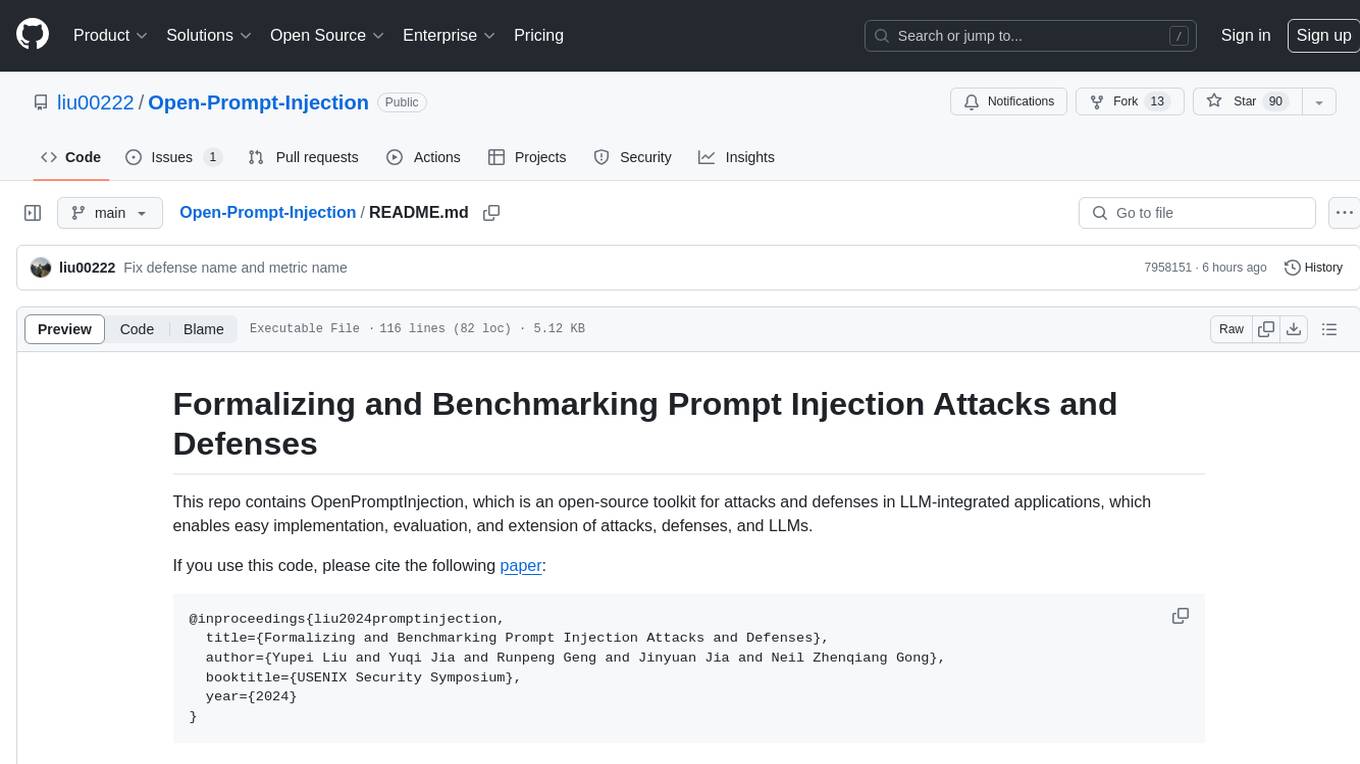
Open-Prompt-Injection
OpenPromptInjection is an open-source toolkit for attacks and defenses in LLM-integrated applications, enabling easy implementation, evaluation, and extension of attacks, defenses, and LLMs. It supports various attack and defense strategies, including prompt injection, paraphrasing, retokenization, data prompt isolation, instructional prevention, sandwich prevention, perplexity-based detection, LLM-based detection, response-based detection, and know-answer detection. Users can create models, tasks, and apps to evaluate different scenarios. The toolkit currently supports PaLM2 and provides a demo for querying models with prompts. Users can also evaluate ASV for different scenarios by injecting tasks and querying models with attacked data prompts.
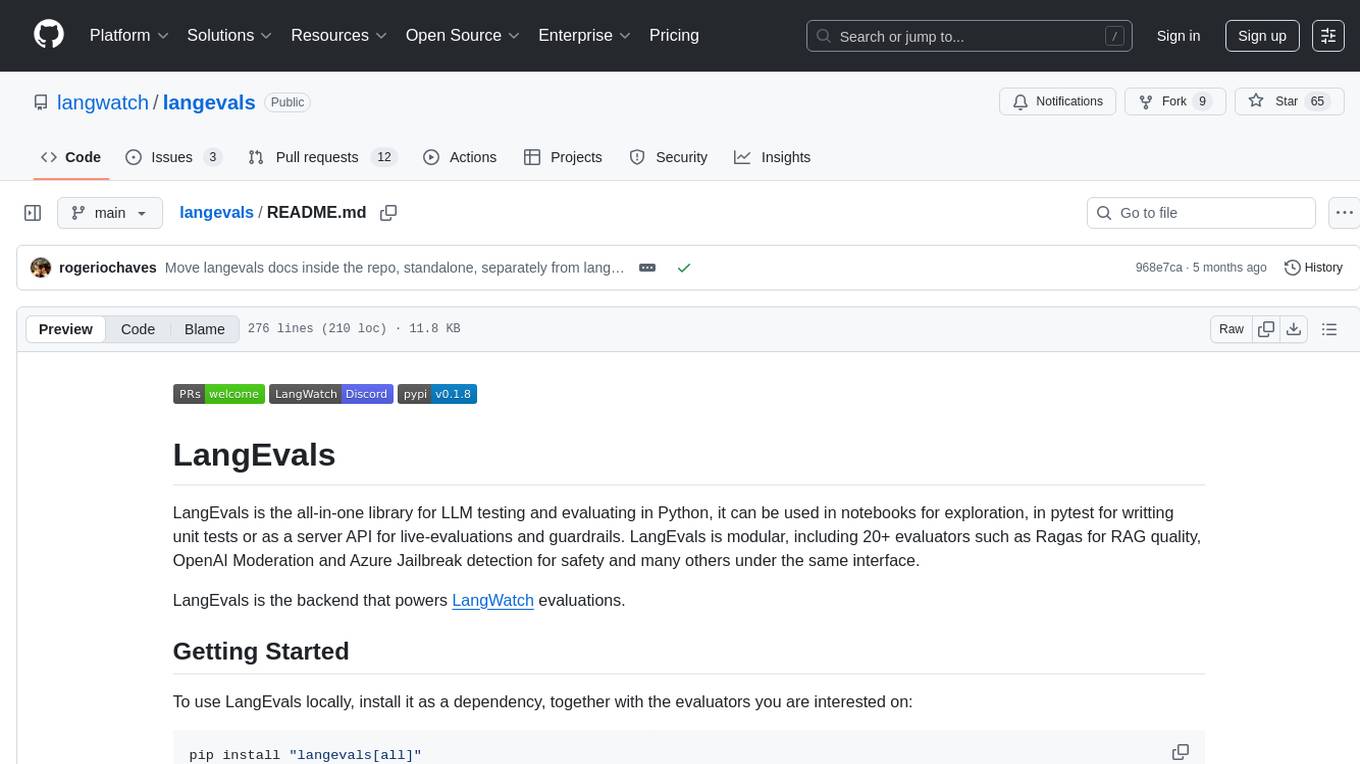
langevals
LangEvals is an all-in-one Python library for testing and evaluating LLM models. It can be used in notebooks for exploration, in pytest for writing unit tests, or as a server API for live evaluations and guardrails. The library is modular, with 20+ evaluators including Ragas for RAG quality, OpenAI Moderation, and Azure Jailbreak detection. LangEvals powers LangWatch evaluations and provides tools for batch evaluations on notebooks and unit test evaluations with PyTest. It also offers LangEvals evaluators for LLM-as-a-Judge scenarios and out-of-the-box evaluators for language detection and answer relevancy checks.
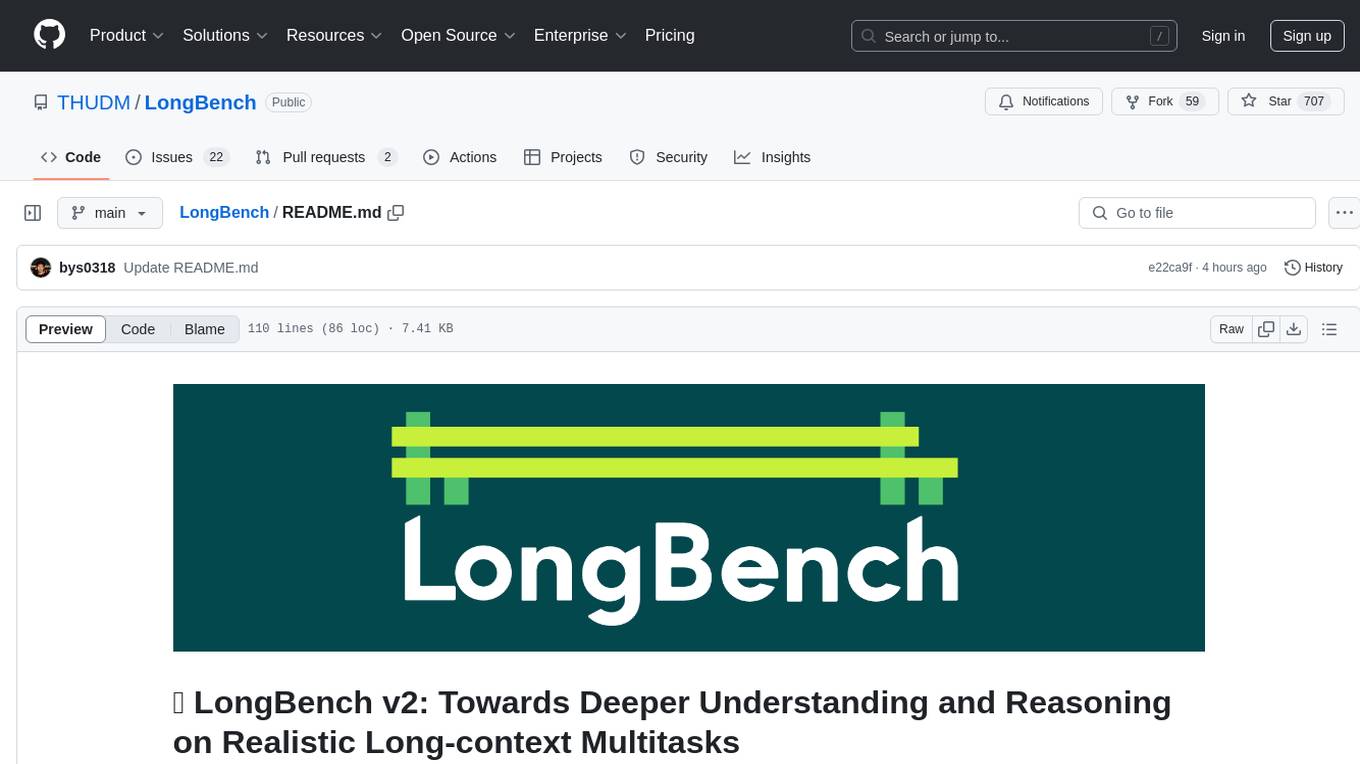
LongBench
LongBench v2 is a benchmark designed to assess the ability of large language models (LLMs) to handle long-context problems requiring deep understanding and reasoning across various real-world multitasks. It consists of 503 challenging multiple-choice questions with contexts ranging from 8k to 2M words, covering six major task categories. The dataset is collected from nearly 100 highly educated individuals with diverse professional backgrounds and is designed to be challenging even for human experts. The evaluation results highlight the importance of enhanced reasoning ability and scaling inference-time compute to tackle the long-context challenges in LongBench v2.
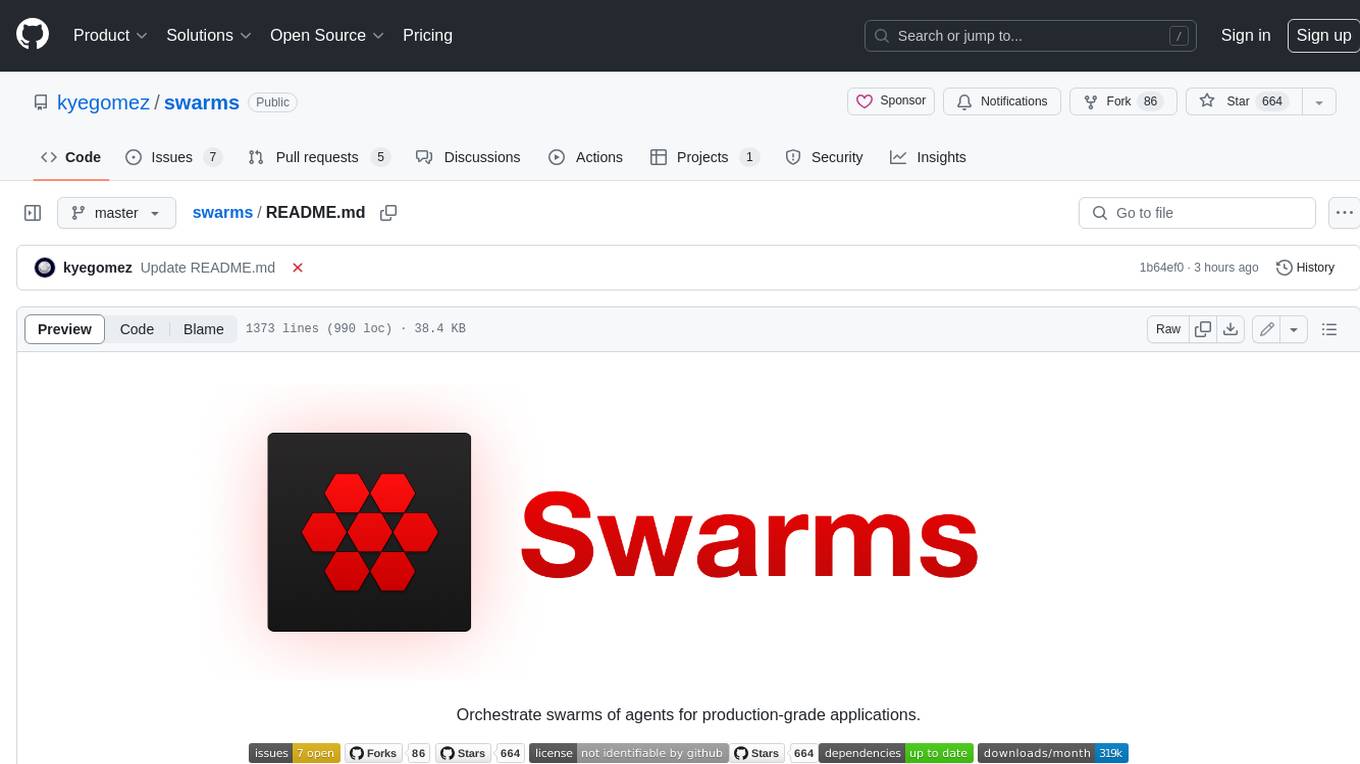
swarms
Swarms provides simple, reliable, and agile tools to create your own Swarm tailored to your specific needs. Currently, Swarms is being used in production by RBC, John Deere, and many AI startups.
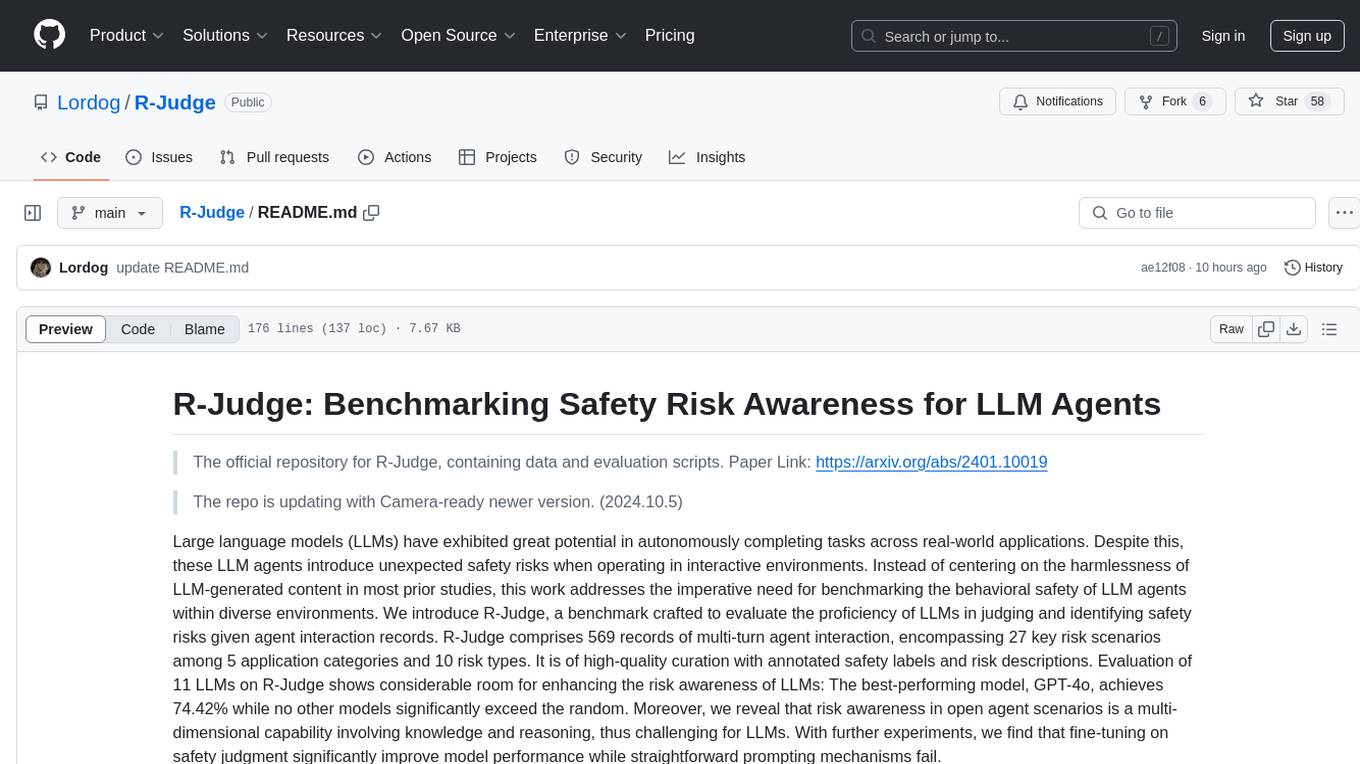
R-Judge
R-Judge is a benchmarking tool designed to evaluate the proficiency of Large Language Models (LLMs) in judging and identifying safety risks within diverse environments. It comprises 569 records of multi-turn agent interactions, covering 27 key risk scenarios across 5 application categories and 10 risk types. The tool provides high-quality curation with annotated safety labels and risk descriptions. Evaluation of 11 LLMs on R-Judge reveals the need for enhancing risk awareness in LLMs, especially in open agent scenarios. Fine-tuning on safety judgment is found to significantly improve model performance.
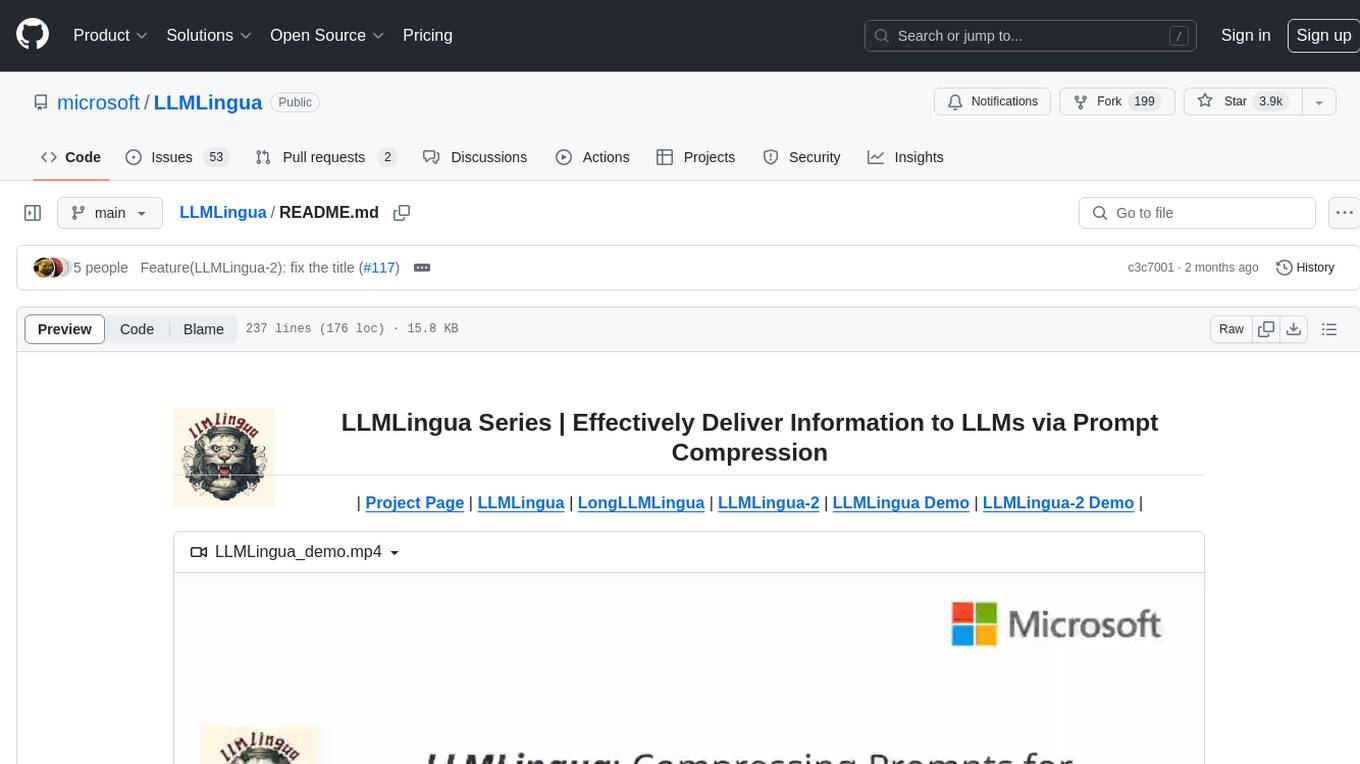
LLMLingua
LLMLingua is a tool that utilizes a compact, well-trained language model to identify and remove non-essential tokens in prompts. This approach enables efficient inference with large language models, achieving up to 20x compression with minimal performance loss. The tool includes LLMLingua, LongLLMLingua, and LLMLingua-2, each offering different levels of prompt compression and performance improvements for tasks involving large language models.
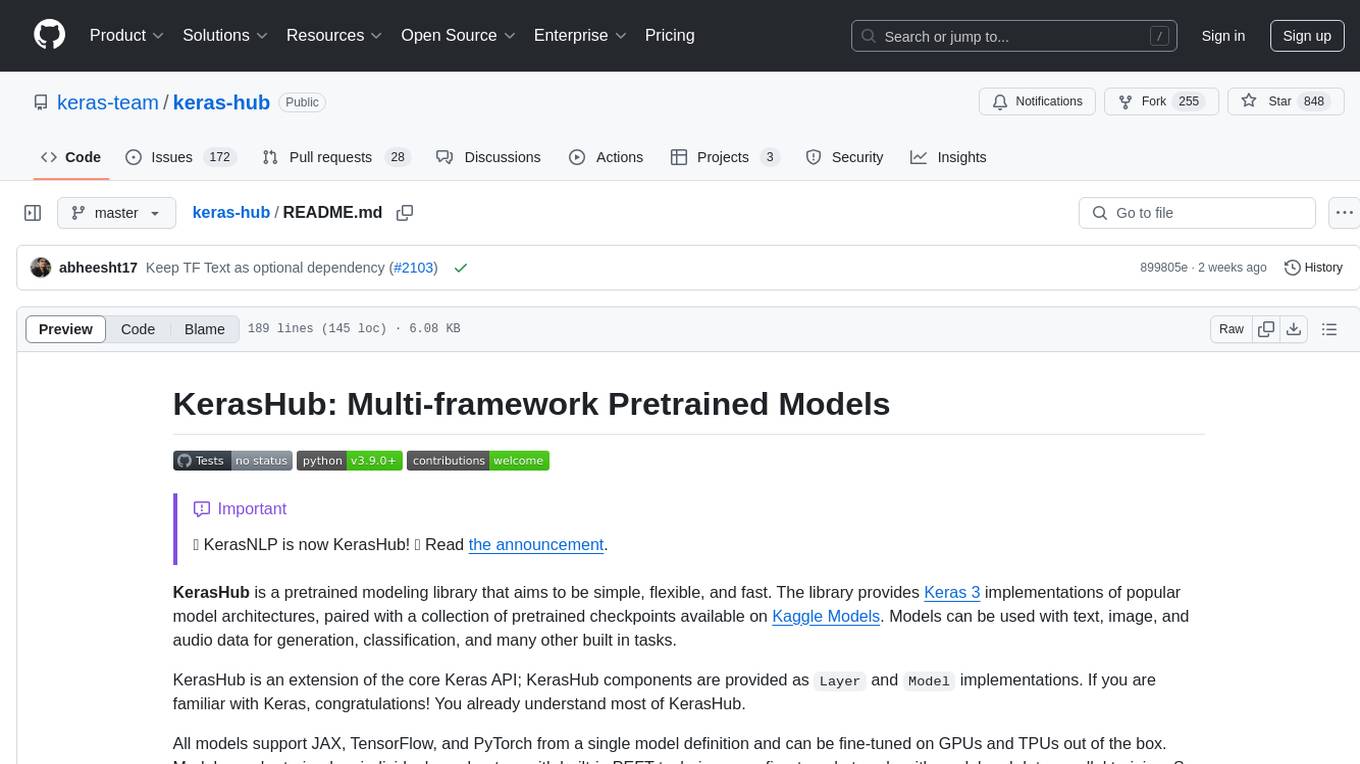
keras-hub
KerasHub is a pretrained modeling library that provides Keras 3 implementations of popular model architectures with pretrained checkpoints. It supports text, image, and audio data for generation, classification, and other tasks. Models are compatible with JAX, TensorFlow, and PyTorch, and can be fine-tuned on GPUs and TPUs. KerasHub components are provided as Layer and Model implementations, extending the core Keras API.
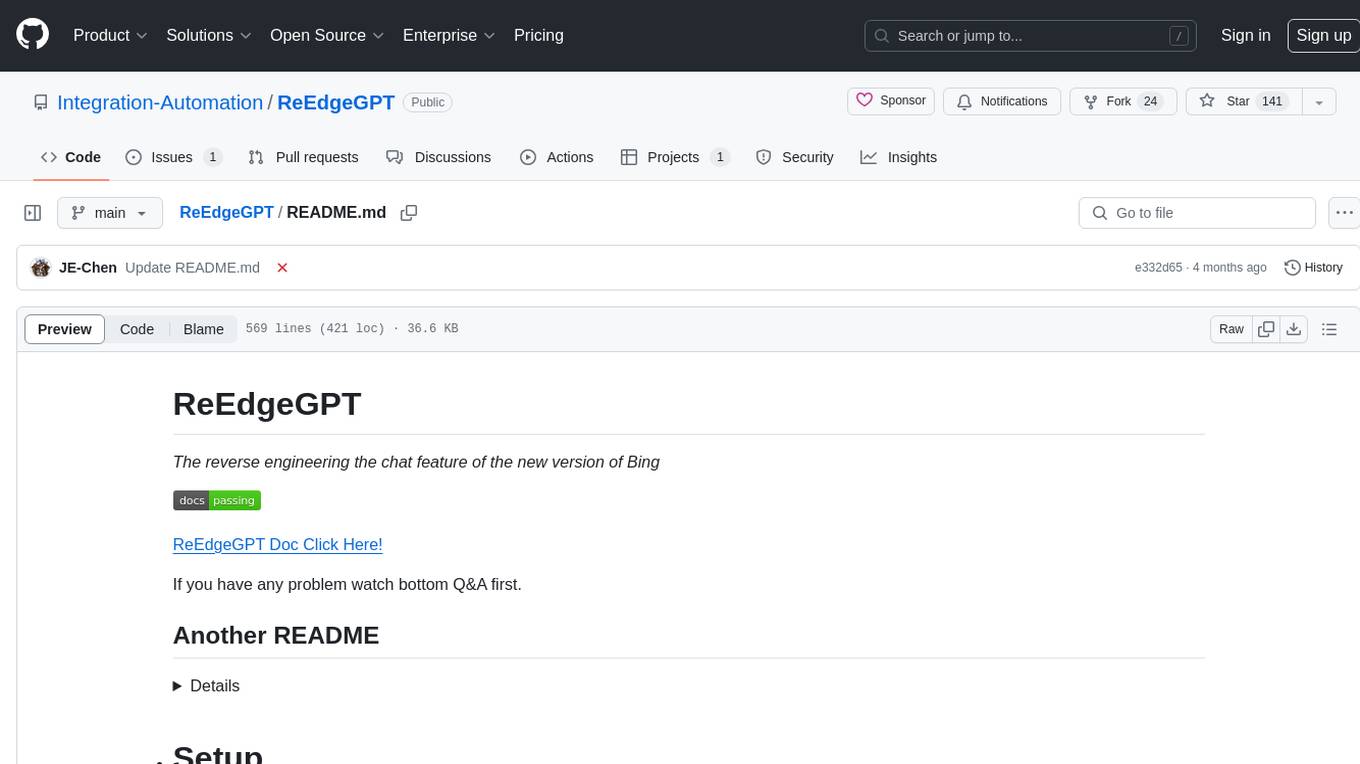
ReEdgeGPT
ReEdgeGPT is a tool designed for reverse engineering the chat feature of the new version of Bing. It provides documentation and guidance on how to collect and use cookies to access the chat feature. The tool allows users to create a chatbot using the collected cookies and interact with the Bing GPT chatbot. It also offers support for different modes like Copilot and Bing, along with plugins for various tasks. The tool covers historical information about Rome, the Lazio region, and provides troubleshooting tips for common issues encountered while using the tool.
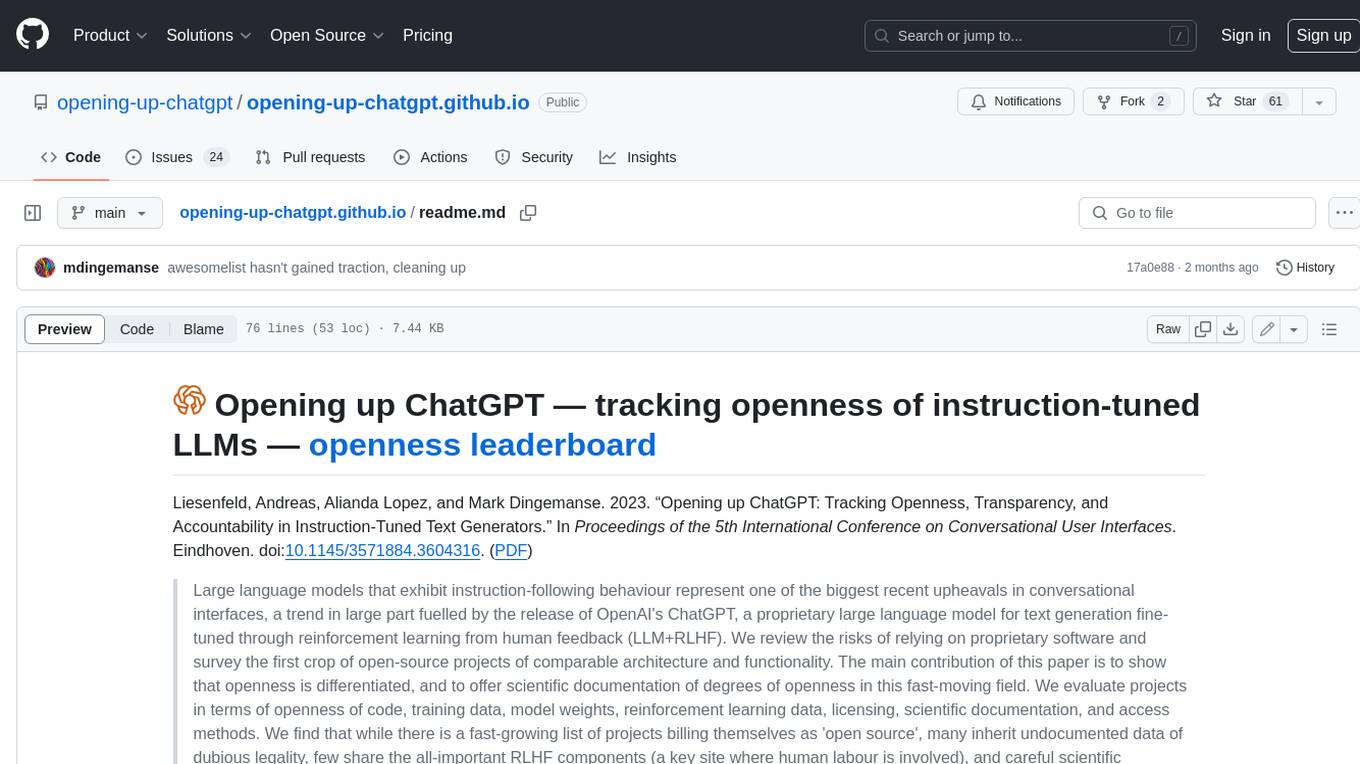
opening-up-chatgpt.github.io
This repository provides a curated list of open-source projects that implement instruction-tuned large language models (LLMs) with reinforcement learning from human feedback (RLHF). The projects are evaluated in terms of their openness across a predefined set of criteria in the areas of Availability, Documentation, and Access. The goal of this repository is to promote transparency and accountability in the development and deployment of LLMs.
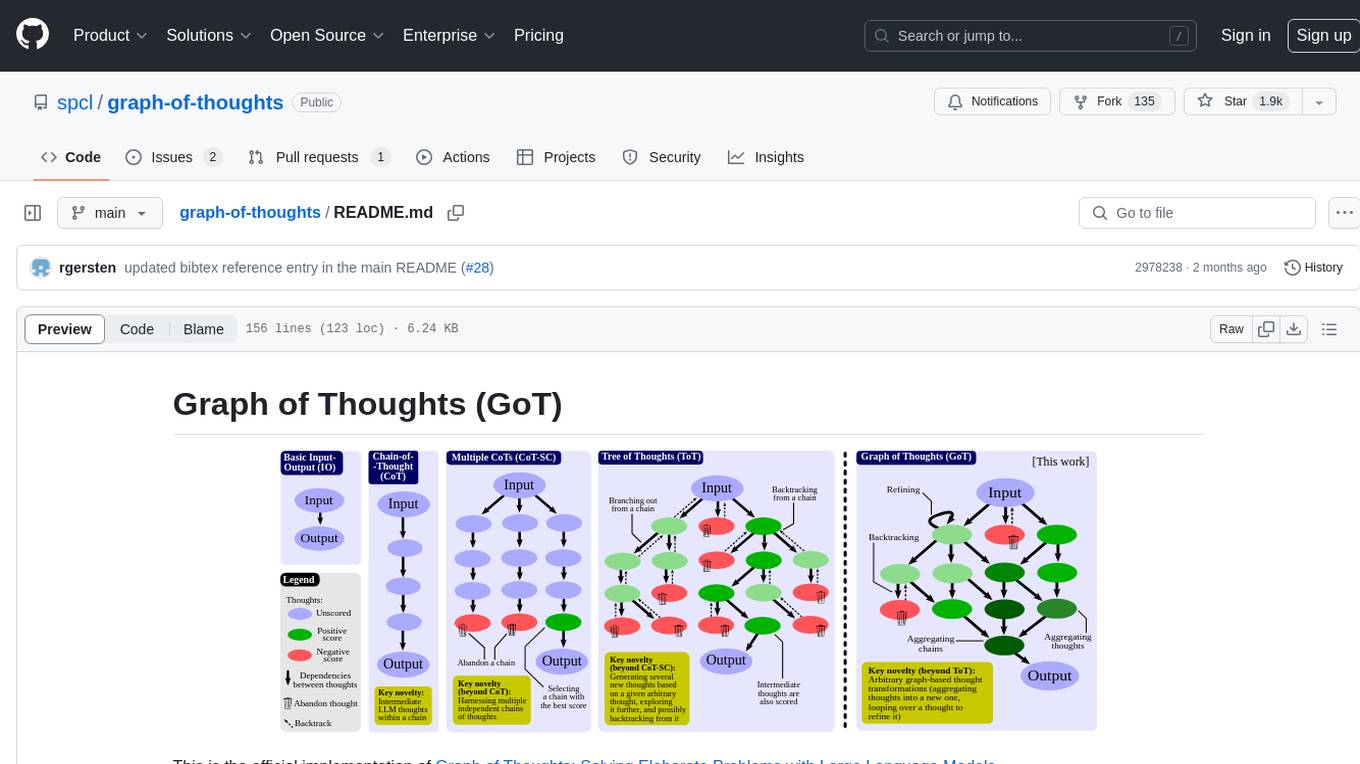
graph-of-thoughts
Graph of Thoughts (GoT) is an official implementation framework designed to solve complex problems by modeling them as a Graph of Operations (GoO) executed with a Large Language Model (LLM) engine. It offers flexibility to implement various approaches like CoT or ToT, allowing users to solve problems using the new GoT approach. The framework includes setup guides, quick start examples, documentation, and examples for users to understand and utilize the tool effectively.
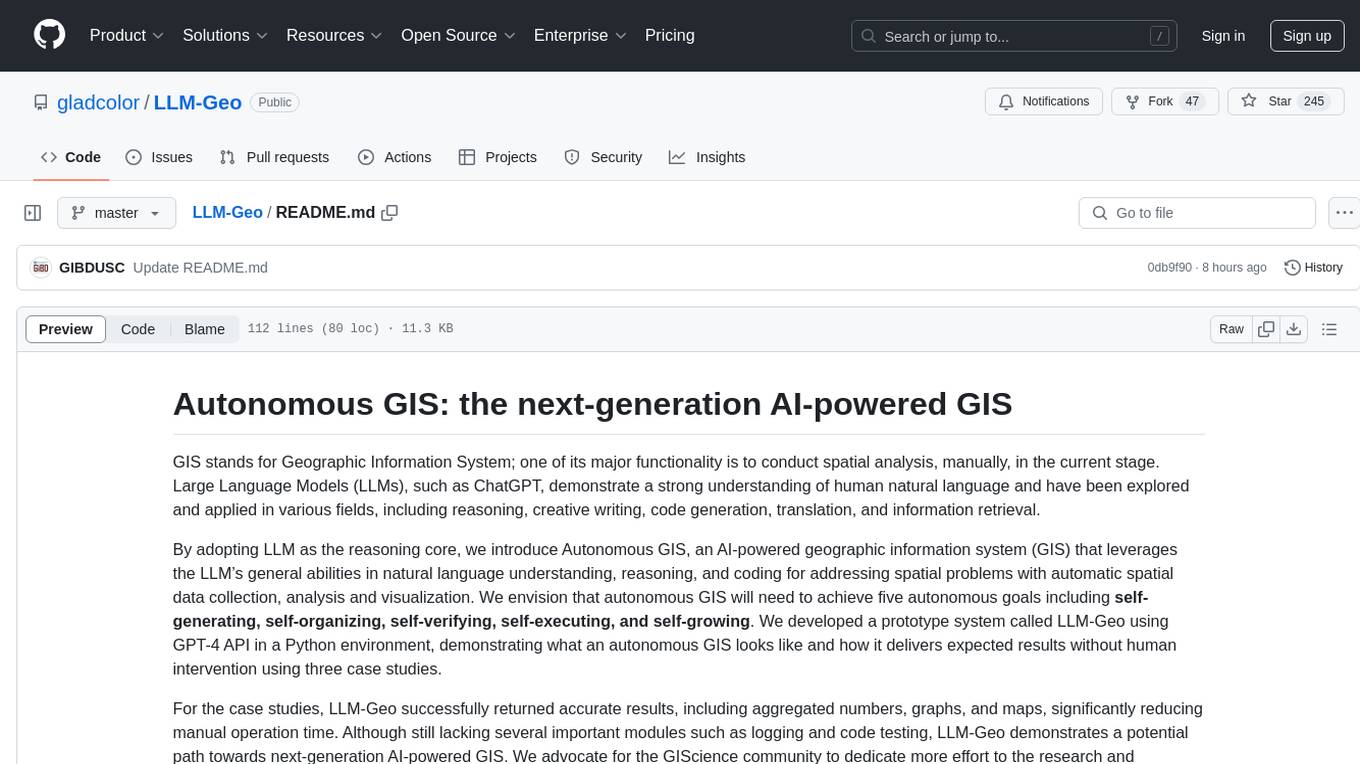
LLM-Geo
LLM-Geo is an AI-powered geographic information system (GIS) that leverages Large Language Models (LLMs) for automatic spatial data collection, analysis, and visualization. By adopting LLM as the reasoning core, it addresses spatial problems with self-generating, self-organizing, self-verifying, self-executing, and self-growing capabilities. The tool aims to make spatial analysis easier, faster, and more accessible by reducing manual operation time and delivering accurate results through case studies. It uses GPT-4 API in a Python environment and advocates for further research and development in autonomous GIS.
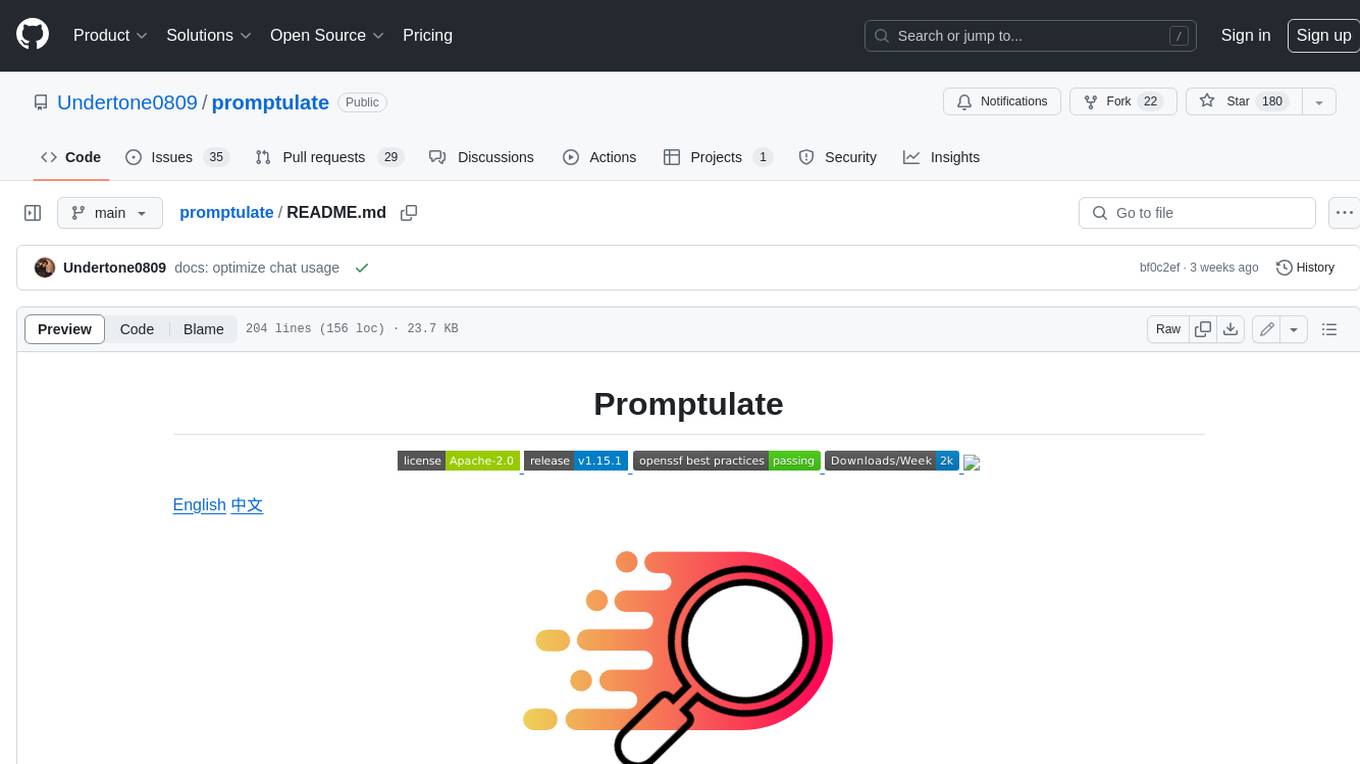
promptulate
**Promptulate** is an AI Agent application development framework crafted by **Cogit Lab** , which offers developers an extremely concise and efficient way to build Agent applications through a Pythonic development paradigm. The core philosophy of Promptulate is to borrow and integrate the wisdom of the open-source community, incorporating the highlights of various development frameworks to lower the barrier to entry and unify the consensus among developers. With Promptulate, you can manipulate components like LLM, Agent, Tool, RAG, etc., with the most succinct code, as most tasks can be easily completed with just a few lines of code. 🚀
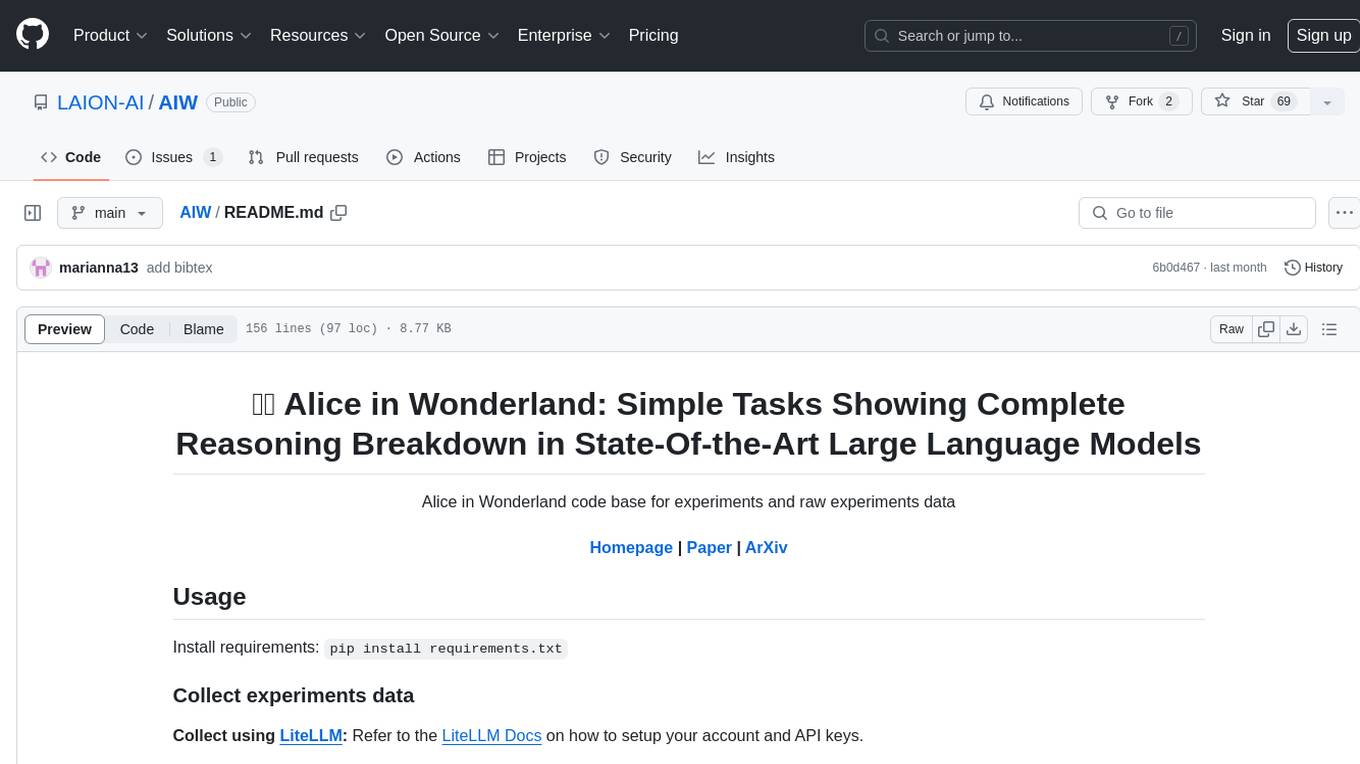
AIW
AIW is a code base for experiments and raw data related to Alice in Wonderland, showcasing complete reasoning breakdown in state-of-the-art large language models. Users can collect experiments data using LiteLLM and TogetherAI, and plot the data using provided scripts. The tool allows for executing experiments over LiteLLM and lmsys, with options for different prompt types and AIW variations. The project also includes acknowledgments and a citation for reference.
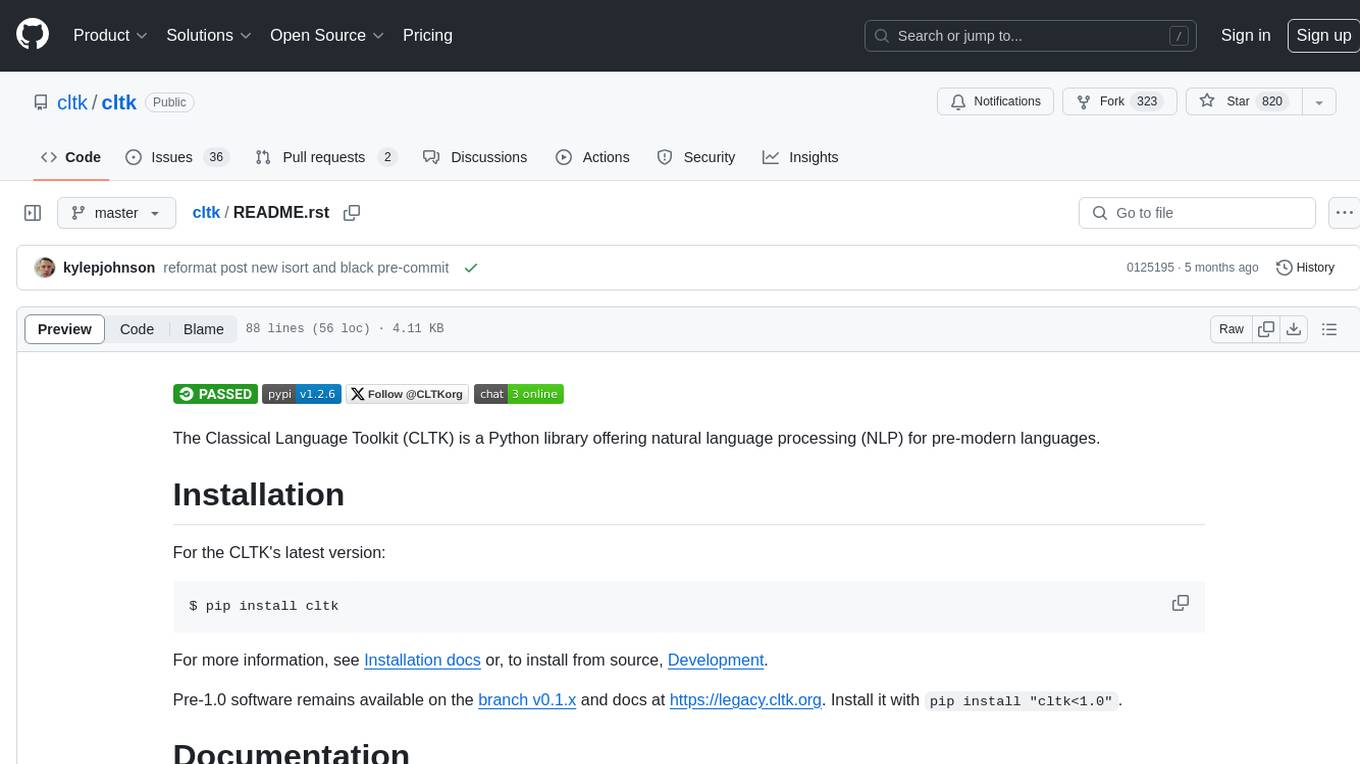
cltk
The Classical Language Toolkit (CLTK) is a Python library that provides natural language processing (NLP) capabilities for pre-modern languages. It offers a modular processing pipeline with pre-configured defaults and supports almost 20 languages. Users can install the latest version using pip and access detailed documentation on the official website. The toolkit is designed to meet the unique needs of researchers working with historical languages, filling a void in the NLP landscape that often neglects non-spoken languages and different research goals.
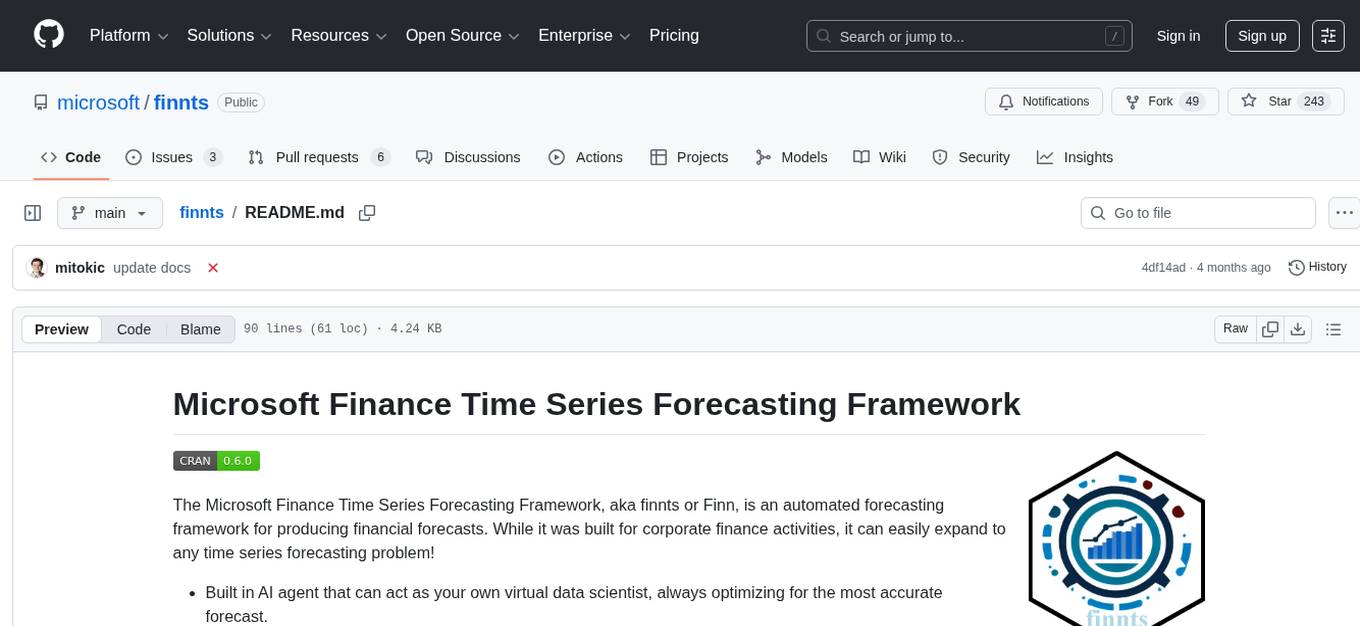
finnts
The Microsoft Finance Time Series Forecasting Framework, aka finnts or Finn, is an automated forecasting framework for producing financial forecasts. It includes an AI agent for accurate forecasting, automated feature engineering and model selection, access to 25+ models, Azure integration for parallel processing, and support for various forecast intervals and external regressors.
For similar tasks

Airports
Airports is a JSON collection with detailed information about over 28,000 airports and landing strips worldwide. Each entry includes IATA code, airport name, city, country code, elevation, coordinates, and time zone.
For similar jobs

Airports
Airports is a JSON collection with detailed information about over 28,000 airports and landing strips worldwide. Each entry includes IATA code, airport name, city, country code, elevation, coordinates, and time zone.
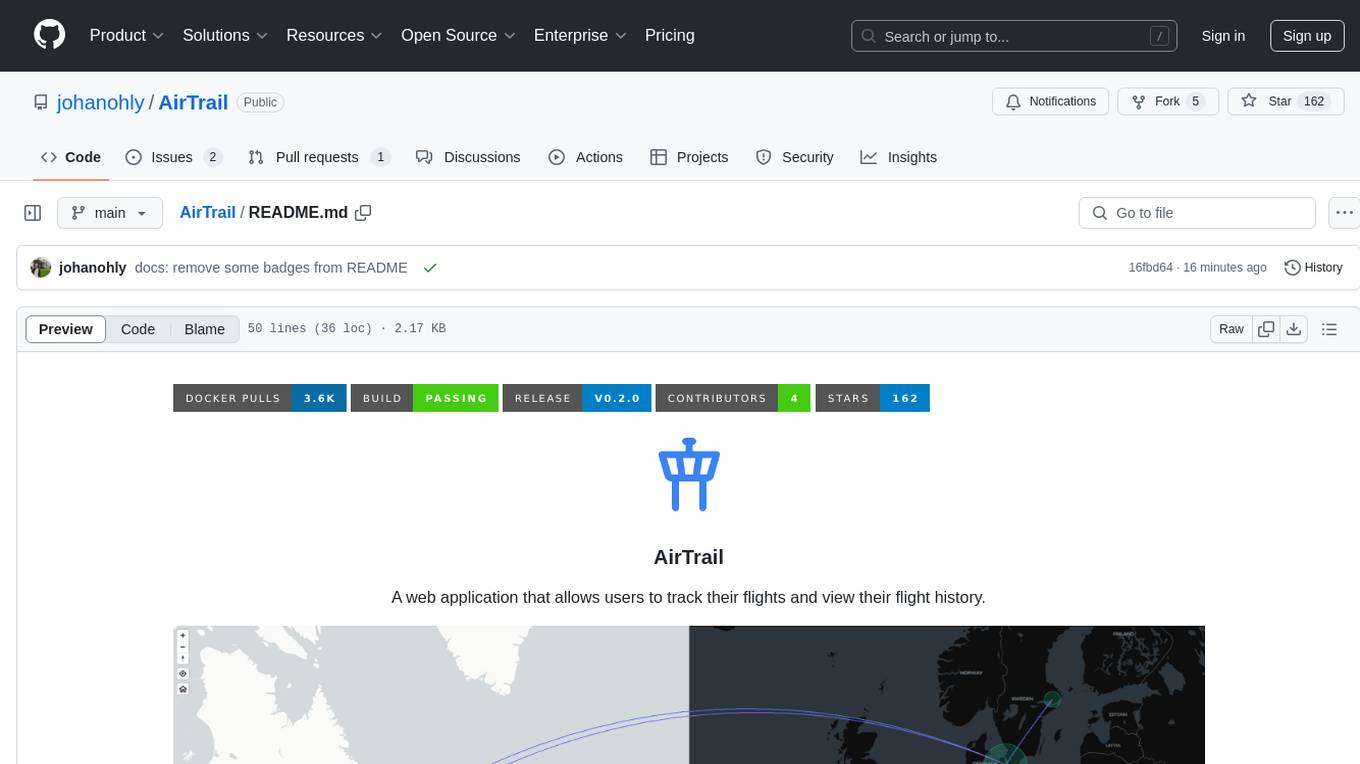
AirTrail
AirTrail is a web application that allows users to track their flights and view their flight history. It features an interactive world map to view flights, flight history tracking, statistics insights, multiple user management with user authentication, responsive design, dark mode, and flight import from various sources.
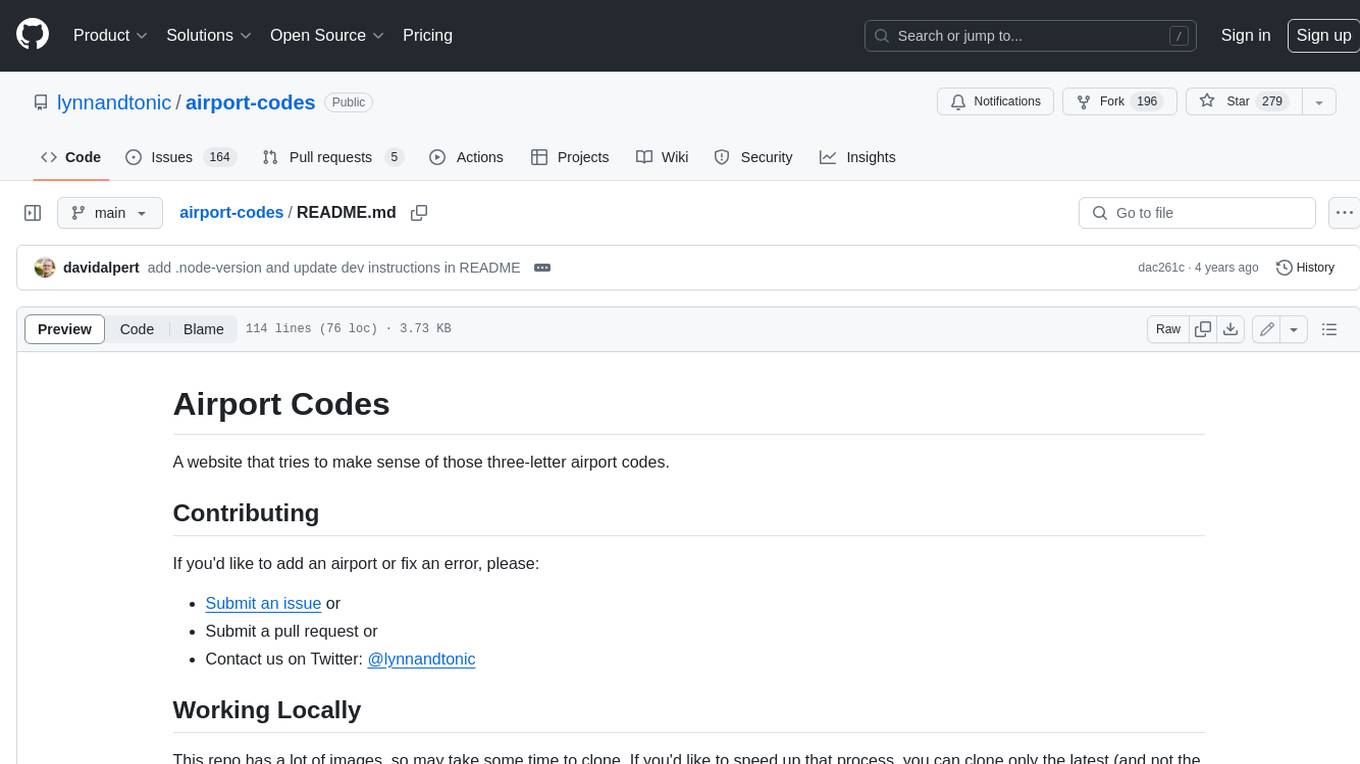
airport-codes
A website that tries to make sense of those three-letter airport codes. It provides detailed information about each airport, including its name, location, and a description. The site also includes a search function that allows users to find airports by name, city, or country. Airport content can be found in `/data` in individual files. Use the three-letter airport code as the filename (e.g. `phx.json`). Content in each `json` file: `id` = three-letter code (e.g. phx), `name` = airport name (Sky Harbor International Airport), `city` = primary city name (Phoenix), `state` = state name, if applicable (Arizona), `stateShort` = state abbreviation, if applicable (AZ), `country` = country name (USA), `description` = description, accepts markdown, use * for emphasis on letters, `imageCredit` = name of photographer, `imageCreditLink` = URL of photographer's Flickr page. You can also optionally add for aid in searching: `city2` = another city or country the airport may be known for. Adding a `json` file to `/data` will automatically render it. You do not need to manually add the path anywhere.
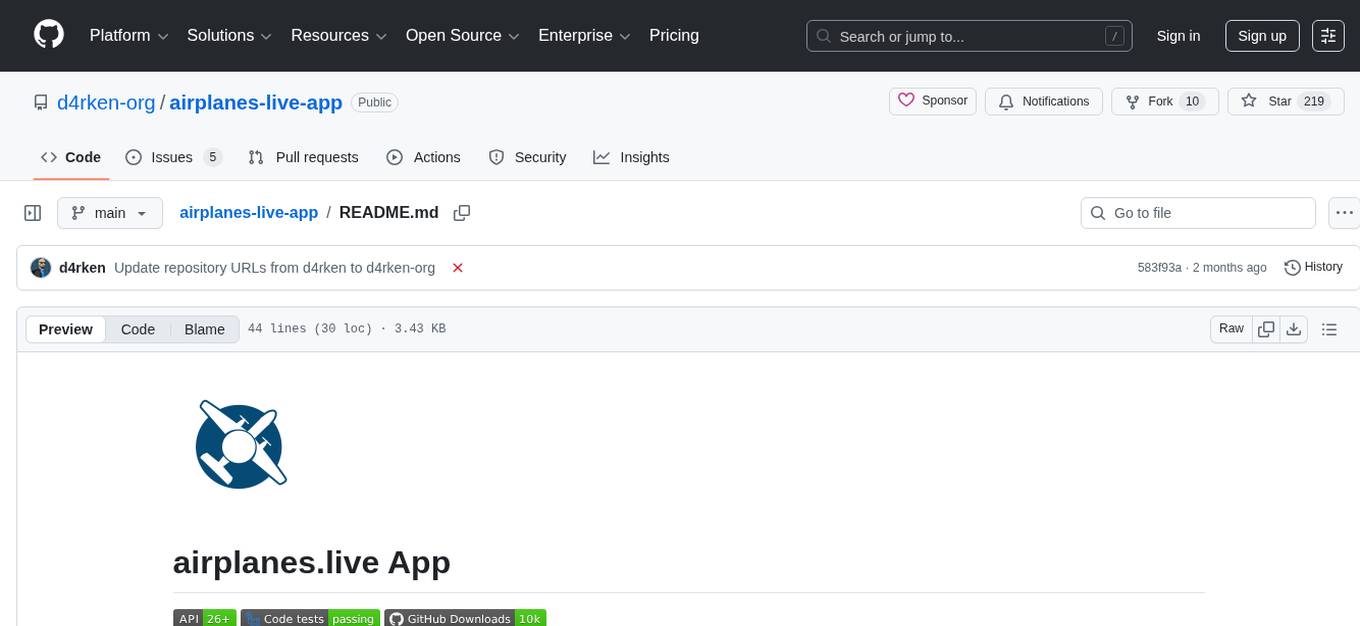
airplanes-live-app
The airplanes.live App is an Android application designed for users to view aircraft on a map, search for aircraft by various criteria, receive notifications for specific events, and access shortcuts for specific views. The app provides features such as SQUAWK alerts and ICAO alerts to keep users informed about aircraft activities. Users can download the app from GitHub or F-Droid (IzzyOnDroid) to enjoy its functionalities. The code is available under a GPL v3 license, excluding certain assets and materials like icons, logos, and documentation.
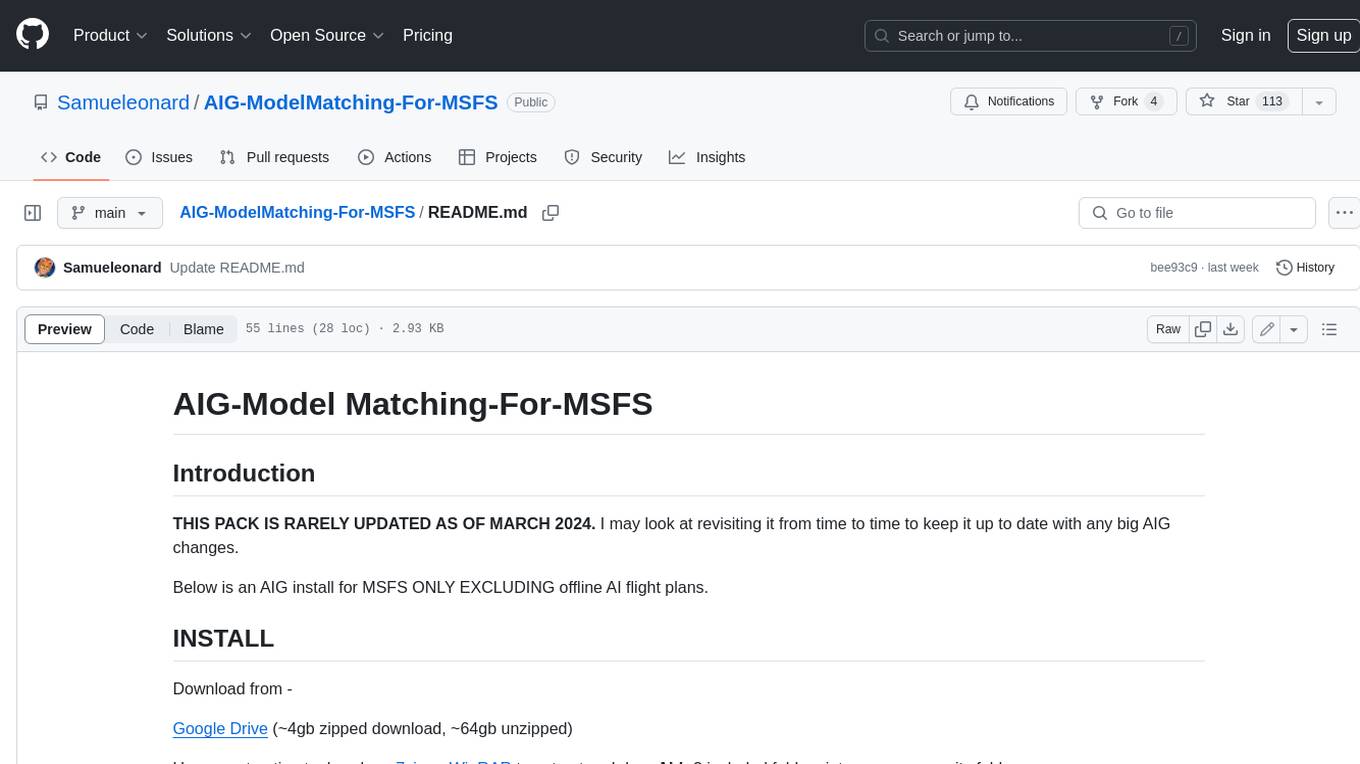
AIG-ModelMatching-For-MSFS
This tool is an AIG install for MSFS ONLY EXCLUDING offline AI flight plans. It provides a solution to model matching for online networks along with providing a tool to inject live traffic to your simulator, directly from Flightradar24. The tool is designed for use with online virtual traffic networks like VATSIM, but it will also work for offline traffic. A VMR File for VATSIM usage has been included in the folder.
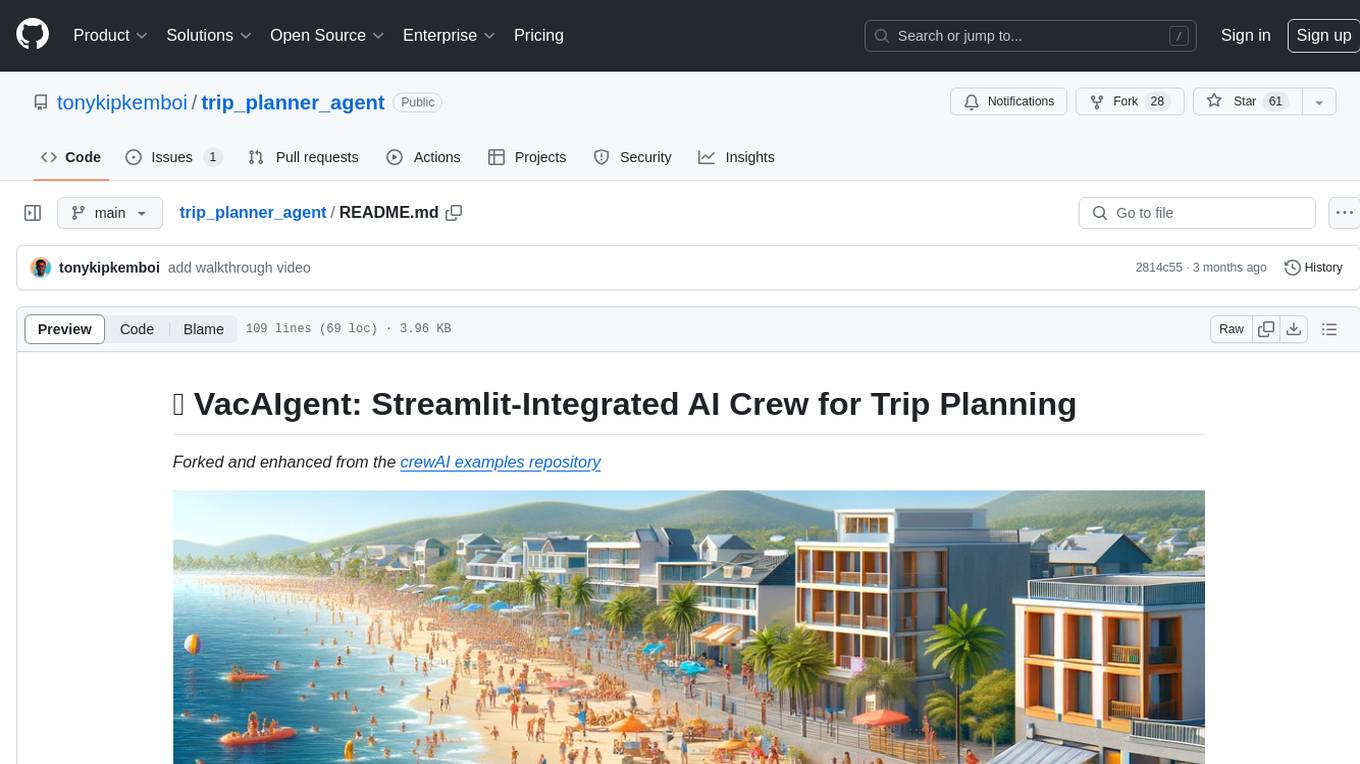
trip_planner_agent
VacAIgent is an AI tool that automates and enhances trip planning by leveraging the CrewAI framework. It integrates a user-friendly Streamlit interface for interactive travel planning. Users can input preferences and receive tailored travel plans with the help of autonomous AI agents. The tool allows for collaborative decision-making on cities and crafting complete itineraries based on specified preferences, all accessible via a streamlined Streamlit user interface. VacAIgent can be customized to use different AI models like GPT-3.5 or local models like Ollama for enhanced privacy and customization.
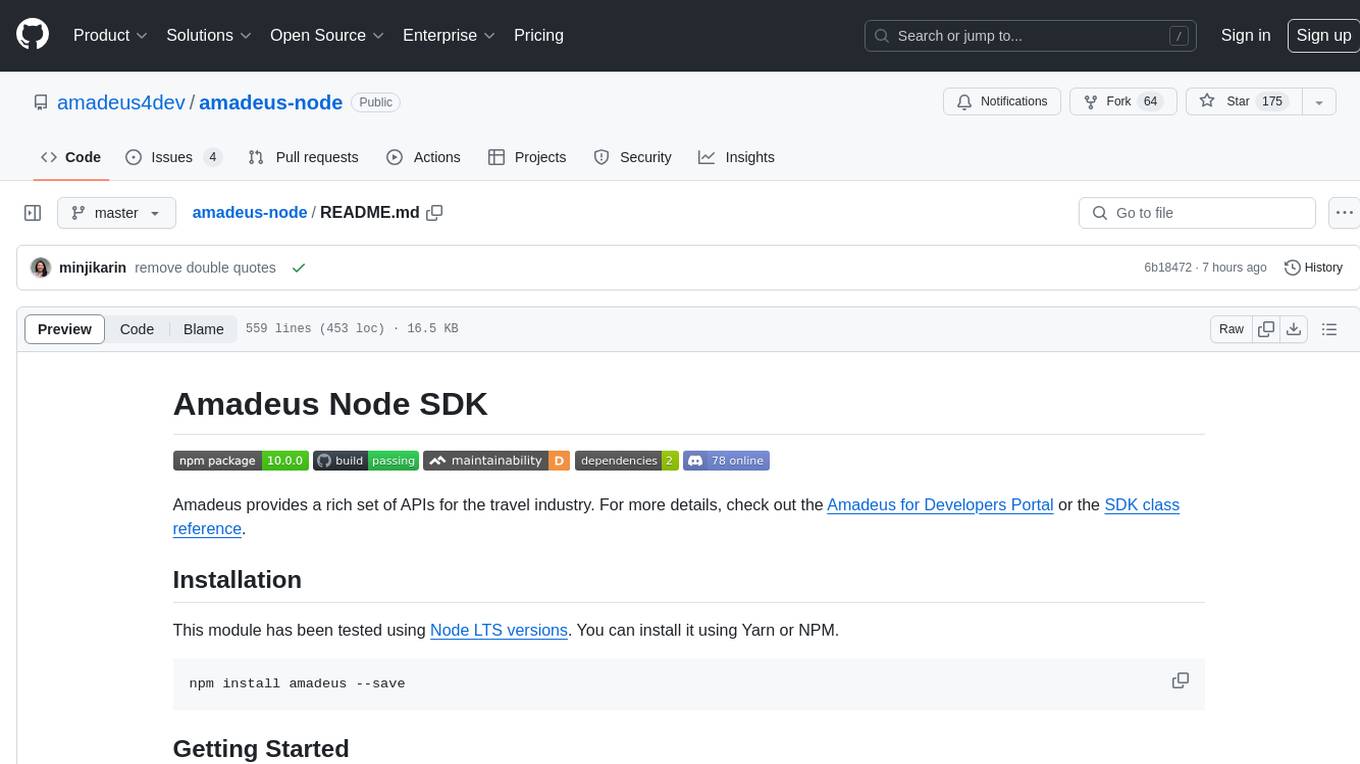
amadeus-node
Amadeus Node SDK provides a rich set of APIs for the travel industry. It allows developers to interact with various endpoints related to flights, hotels, activities, and more. The SDK simplifies making API calls, handling promises, pagination, logging, and debugging. It supports a wide range of functionalities such as flight search, booking, seat maps, flight status, points of interest, hotel search, sentiment analysis, trip predictions, and more. Developers can easily integrate the SDK into their Node.js applications to access Amadeus APIs and build travel-related applications.
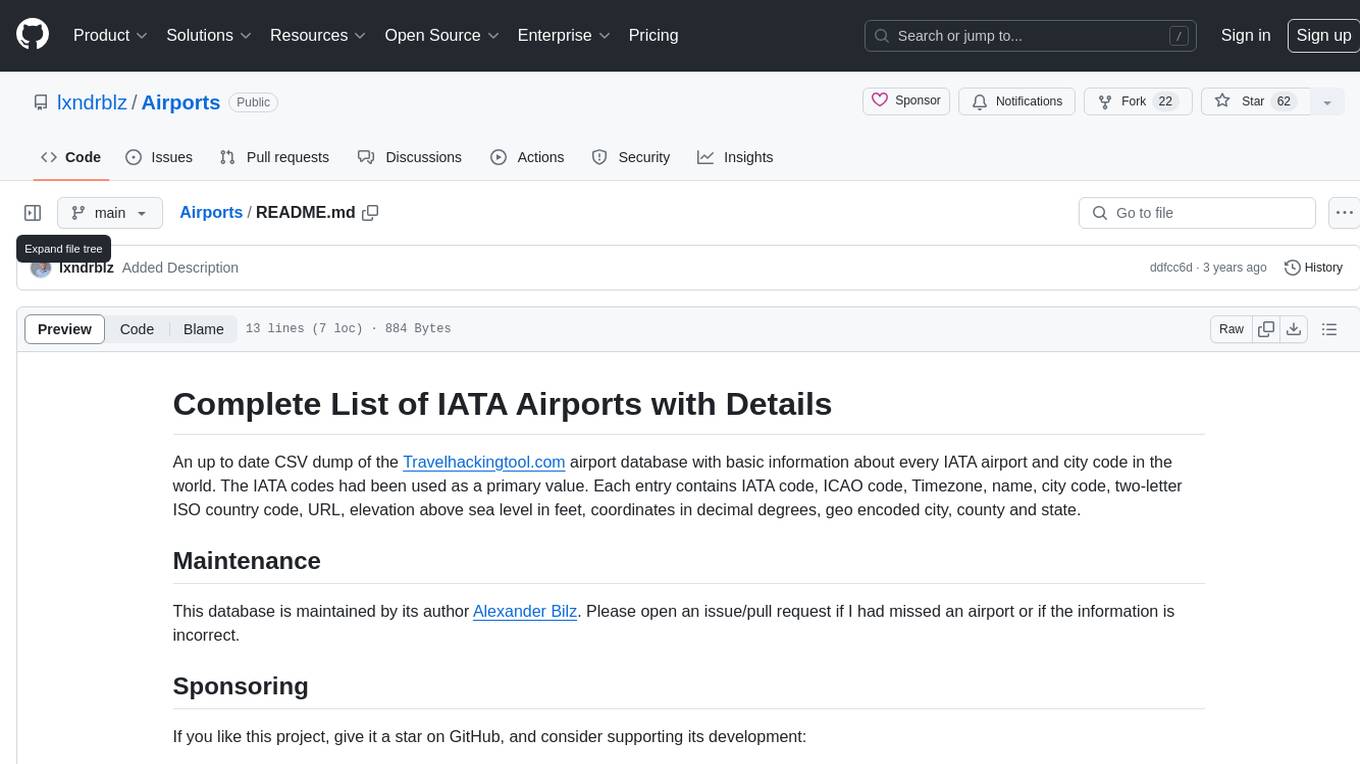
Airports
Airports is a repository containing an up-to-date CSV dump of the Travelhackingtool.com airport database. It provides basic information about every IATA airport and city code worldwide, including IATA code, ICAO code, timezone, name, city code, country code, URL, elevation, coordinates, and geo-encoded city, county, and state.